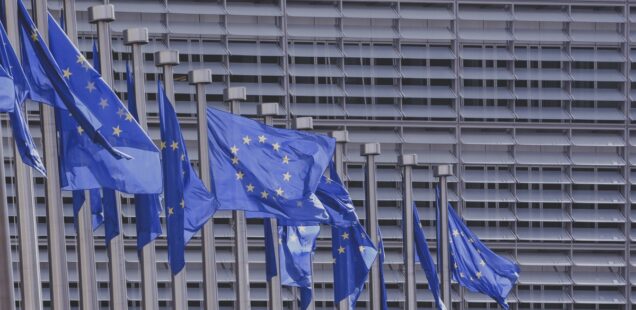
Top defense officials from Europe’s five biggest military spenders gathered in Berlin today to reaffirm their support for Ukraine and unveil several steps aimed at reinforcing Europe’s eastern defenses.
Leaders from Germany, the U.K., France, Poland, Italy and the EU announced new military and financial assistance for Ukraine, along with plans to station counter-drone units in Finland and Belgium.
Germany pledged at least €150 million ($175 million) worth of U.S.-manufactured military equipment for Kyiv through a program that provides Ukraine with weapons only produced in the United States. This commitment comes in addition to the military aid package approved by the German parliament earlier this week. Germany expects to allocate €11.5 billion ($13.4 billion) to Ukraine in 2026—an increase of €3 billion compared to this year.
A major topic for the “Group of Five” was the rise in hybrid attacks across Europe, including acts of sabotage, unexplained drone incidents, cyberattacks and violations of airspace.
“We are facing a range of threats,” said Polish State Secretary Paweł Zalewski. “Russia is behind these actions.”
U.K. Defence Secretary John Healey revealed that Britain joined Germany in dispatching military advisers to Belgium last weekend to help respond to a sudden surge of unidentified drones. He also confirmed that the U.K. has deployed anti-drone units to Finland, which borders Russia more extensively than any other NATO member.
German Defense Minister Boris Pistorius noted that Germany has also sent “anti-drone troops” from its air force to Belgium with only a few hours’ notice. He linked the timing of the drone incidents to ongoing discussions about using frozen Russian assets in Belgium to aid Ukraine.
Counter-drone capabilities will remain a central focus for Europe’s top military powers. Pistorius said that work is already underway on a cost-efficient drone defense proposal to be finalized for the next ministerial meeting in Warsaw early next year.
Officials also exchanged intelligence indicating that 93% of Russian strikes in Ukraine target civilian areas—a figure cited repeatedly by the Italian and German defense ministers and the EU’s foreign policy chief, Kaja Kallas.
Kallas reiterated that the EU still seeks an immediate ceasefire, but noted, “Russia has no interest in negotiating.” She also floated the idea of seizing frozen Russian state assets held in Western banks as Ukraine will require substantial funding next year. Using immobilized Russian funds, she said, “is the most straightforward solution.”
On the home front, Kallas added that the EU is working on upgrading key transport infrastructure—roads, rail lines and bridges—to improve the movement of military forces, in close coordination with NATO planning efforts.




